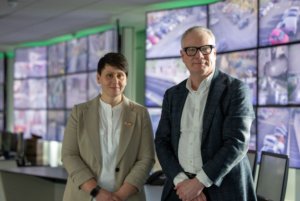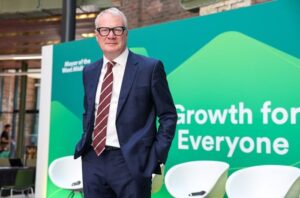West Midlands councils and Mayor Andy Street have set out plans to lobby the Government to introduce a nationwide road pricing scheme.
The region’s leaders want to ‘manage demand’ for car travel, using measures to ‘influence the cost and convenience of different forms of transport.’ They plan to explore the case for a national Road User Charging scheme and promote Government action to progress this.
The strategy document’s foreword, written jointly by Mr Street, a Conservative, and Ian Ward, the Labour leader of Birmingham City Council, states: “Managing demand will be critical to enabling behaviour change, and will provide the means to improve alternative modes of travel.”
The pair add: “Cars will be needed and will be a critical part of our transport system for many years. However, they don’t have to be the daily default choice that they are for many today.”
The document explains that a key goal of West Midlands leaders is to cut car use. It states: “Within the lifespan of this plan it is not envisioned that people will stop using cars, but a key aim is to reduce distances and trips made by car, and the more we do this, the better we address our aims.”
And the region’s leaders believe the Government is ready to consider a national road pricing scheme. The document states: “Government has also acknowledged that there is a case to consider national road pricing as a possible measure to address the reduction in fuel duty as the use of fossil fuels in vehicles is phased out reports the Birmingham Mail.
“Such a measure would have significant potential to support behaviour change across the whole of the country.”
They are keen to avoid introducing a scheme just for the West Midlands, because they believe this would put the region at a disadvantage compared to other parts of the country, damaging the local economy.
The leaders also warn that it’s not enough simply to make other forms of transport better. They say that people are put off cycling because of the numbers of cars on the roads, and bus companies need more passengers – and more fare revenue – before they can invest in improved services.
It means measures to cut car use are needed first, in order to push people to use other forms of transport.
And they express fears that the Covid-19 pandemic has actually made reliance on cars worse in the region. They say: “There is a concern that as people have adopted new behaviours to avoid public transport where they can, these behaviours may persist after the pandemic is over. There are already signs that this will be the case; as lockdowns have relaxed, public transport has not recovered to the extent of car travel.”
West Midlands leaders may find the Government is keen to hear their proposals, as Ministers do appear to be considering the case for a national road-pricing scheme.
This is partly because the Treasury is set to lose £35 billion in taxes, currently charged on petrol and on traditional motor vehicles, once the nation shifts entirely to electric cars.
Business Minister Paul Scully, asked last week about road pricing, said: “I think it needs to be really worked through. It’s not something I’ll be keen on now. But if you’re looking at electric cars in 10 years’ time, then obviously, if your duty starts to go by the wayside, the Treasury’s got to find something to replace that with. But I suspect [there’ll be] lots of debate before we get anywhere near that.”
A report by the House of Commons Transport Committee last month called for a “road pricing mechanism that uses telematic technology to charge drivers according to distance driven, factoring in vehicle type and congestion.”























